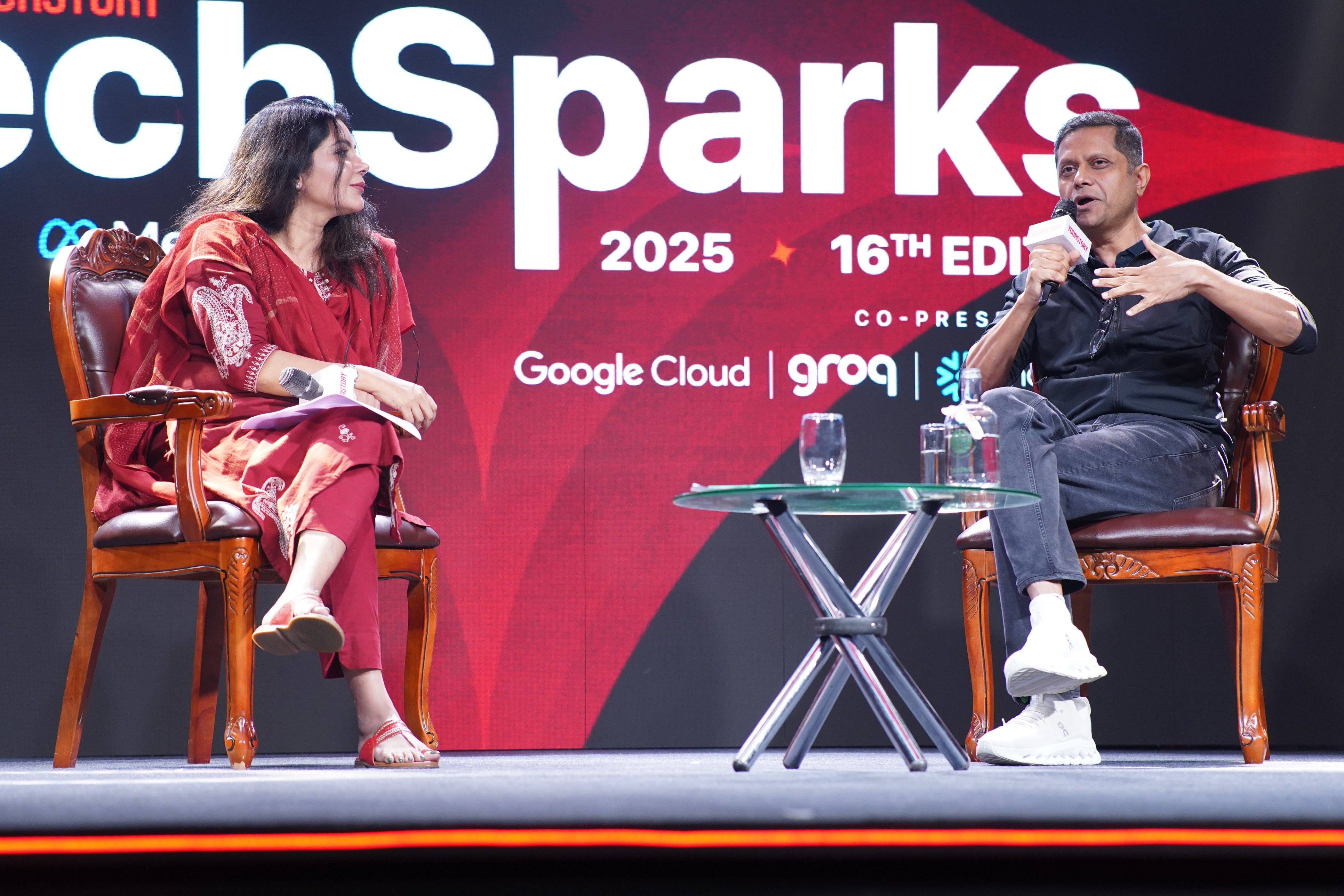Copyright yourstory

Rebuilding a strong deeptech ecosystem is imperative for India’s growth, but the transformation will not happen overnight, said Mukesh Bansal, Founder and CEO, Nurix AI. Bansal was in conversation with Shradha Sharma, Founder and CEO of YourStory, at TechSparks 2025, YourStory's flagship startup-tech event. “India is at a critical pivot point. We need to figure out how to rebuild our deeptech ecosystem. Many well-intentioned people are thinking and working on this, but it won’t happen overnight. I’m somewhat pessimistic about that in the short term—the next five to seven years. But as an entrepreneur, I remain optimistic about it in the long run,” he said. While India had a headstart in building a deeptech ecosystem, priorities began to change along the way, Bansal pointed out. “India had an early start with institutions like TIFR, the Atomic Energy Commission, and ISRO. But somewhere along the way, especially from the 1980s and 1990s onwards, prioritisation of science and research declined. These institutions became backwaters. Now, as we enter an era where technology determines not just progress but also geopolitical influence, it’s clear that whoever controls technology controls the world.” Bansal, a computer science graduate from IIT Kanpur, is the founder and CEO of Nurix AI, a company working on enterprise-focused AI solutions. Prior to this, he had co-founded fashion ecommerce platform Myntra and health-tech startup CureFit. Past success doesn't guarantee future wins Contrary to popular perception that he attracted capital easily, Bansal said it was difficult for him to raise capital to start an AI company, despite being a serial entrepreneur and investor. “Even today, 90% of the VCs whom I spoke to (about Nurix AI) said no." And Bansal understands why. “Just because I built CureFit doesn’t automatically make me a good entrepreneur in AI. It would be both unfair and unwise if people started offering blind support or funding just because someone has had success before. That kind of validation can make a company complacent. Real progress happens when you’re forced to think deeply about what you’re building, understand what others are doing, and find your own path forward,” he explained. Finding that path may be challenging, but Bansal enjoys his journey as a beginner. “The beginner’s mind is a very powerful concept. Especially for those of us who have been around for a while and seen some success, it’s important to remind ourselves that past experience doesn’t automatically translate to new domains,” he said, adding that his experience has given him a few advantages too. “It’s easier for me now to attract high-calibre people and to get things off the ground. Starting up is easier—but building something meaningful is still just as hard,” he said. Rooting for deeptech All his experiences and the passion to develop a deeptech ecosystem worked well for Bansal when he donned the role of an investor. He recollects how he funded the spacetech startup Skyroot in 2018 when two ISRO engineers approached him with a desire to build rockets. “Back then, it was still illegal for a private company in India to build rockets. But they were ambitious, and I decided to back them. I told them, 'If you’re willing to commit to this for ten years, I’ll fund you—not a lot, but enough to keep the team going,’” he said. Looking back, Bansal is happy about the investment. “Fast forward to today: in 2021, the Indian government made it legal for private players to build and launch rockets, and supported them through IN-SPACe. By 2023, this company, Skyroot, became the first private Indian firm to successfully launch a rocket into space. Now, they’re preparing to put satellites into orbit in the coming months." The point is, Bansal emphasised, the country needs ambitious entrepreneurs like the founders of Skyroot—matched with patient capital and enough room for failure along the way. "That’s how a deeptech ecosystem takes shape,” he said. According to Bansal, apart from AI and deeptech, two other fields are touted to bring about a remarkable change in people's lives: quantum technology and biological engineering. “Over the next two to three decades, alongside AI, advances in biology and quantum technologies will likely reshape our lives and the planet in profoundly transformative ways,” he said. While he reminded the audience of how important it is to immediately start working on the deeptech ecosystem, he added that India needs a few genuine breakthroughs. “Else, we will become a tech colony for the US and China,” he said. (Edited by Swetha Kannan)



